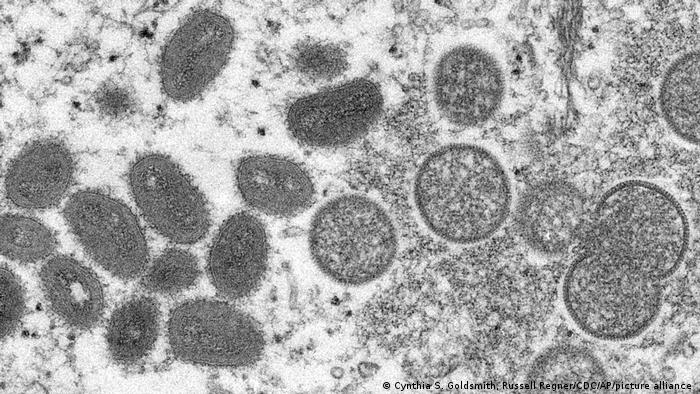
Health officials in Portugal said on Wednesday there were five confirmed cases of monkeypox in young men, and authorities in the US state of Massachusetts said a case had been detected there in a man who had recently traveled to Canada.
Another 15 suspected cases in the area around the Portuguese capital, Lisbon, were also being investigated, Portugal's General Directorate for Health said.
Britain and Spain have also been looking into suspected cases of the viral infection, marking an unusual outbreak in Europe of a disease typically only found in Africa.
What do we know about monkeypox cases in Europe?
Portuguese authorities said all recorded cases mostly involve young men. Officials did not disclose whether they had been to African countries or had links with recent cases in Britain.
Britain has so far reported seven cases since May 7. Four of those cases apparently identified as
gay or bisexual, the UK Health Security Agency said, suggesting that there may be transmission in the community.
On Wednesday, Spanish authorities said they were investigating 23 possible cases, noting they all of them were young men.
There is no scientific evidence suggesting the disease is transmittable through sex. Experts say the infections could have occurred during the close physical contact involved in sex, rather than being a sexually transmittable disease.
What is monkeypox?
The viral infection is similar to smallpox but milder. Its symptoms include fever and a distinctive bumpy rash that normally starts on the face and then moves to other parts of the body.
Most people recover from monkeypox within several weeks.
Transmission is typically through close contact with infected animals or people, though the latter is less common.
It was first recorded in the 1970s in the Democratic Republic of Congo. The number of Monkeypox infections has increased in West Africa in the last decade, however, in a milder strain.
The strain found in West Africa has a fatality rate of around 1% of cases. It is reportedly the same strain reported in Britain.
In 1980, smallpox was eradicated by vaccination, and the jab has been phased out. But it also protects against monkeypox, hence, pulling back the vaccination campaigns might have contributed to the spread of monkeypox cases.